As summer temperatures soar, many of us seek relief in water-based activities. However, for hearing aid users, this can pose a significant risk to their devices. Understanding how to protect your hearing aids from water damage is crucial for maintaining their performance and longevity.
Hearing aids, like many electronic devices, are given an Ingress Protection (IP) rating to indicate their resistance to solids and liquids. The rating consists of two numbers:
1. The first number (0-6) indicates protection against solids like dust.
2. The second number (0-9) shows resistance to liquids.
Most modern hearing aids have an IP68 rating, offering high protection against both dust and water. In theory, these devices can withstand submersion in water for up to 30 minutes without damage.
Even a tiny amount of water can significantly affect hearing aid performance. Just half a microliter of water in the receiver can cause a 30-decibel reduction in performance. To put this in perspective, that's equivalent to three bathtubs full of water in a standard-sized home!
Moisture can lead to:
- Crackling or static sounds
- Weak or intermittent sound quality
- Complete device failure
1. Choose High IP-Rated Devices: When selecting hearing aids, opt for those with high IP ratings for better protection against environmental factors.
2. Dry Your Ears: After swimming or showering, thoroughly dry your ears. You can use a towel or specialized ear dryers like the Mack's Ear Dryer or the Ear Dryer MD.
3. Use Desiccants: Silica gel packets or desiccant pucks can help absorb moisture from your hearing aids when they're not in use. Some rechargeable hearing aid chargers come with designated desiccant puck holders.
4. Electric Hearing Aid Dryers: For those living in humid climates or who sweat heavily, electric dryers like the Zephyr or Perfect Dry Lux can be beneficial. These use heat, desiccants, or a combination to remove moisture from your devices.
5. Professional Dehydration: Some hearing healthcare providers offer professional dehydration services using systems like Redux. This applies heat in a vacuum chamber to extract moisture down to the microliter level.
6. Protective Accessories: Consider using accessories like Ear Gear's spandex slip covers. These wick moisture away from the hearing aid microphones, block debris, and can even reduce wind noise.
Here are some additional tips to keep your hearing aids dry:
- Remove your hearing aids before swimming or showering.
- Use a sweatband when exercising to keep sweat away from your devices.
- Store your hearing aids in a dry, cool place when not in use.
- Consider using a dehumidifier in your home if you live in a humid climate.
Remember, while modern hearing aids are designed to withstand various environmental conditions, they're not indestructible. They're essentially mini supercomputers expected to run for nearly 40,000 hours over their lifespan, all while withstanding exposure to elements like cold, heat, sweat, skin oil, rain, and dust.
By understanding the risks and taking proactive measures to protect your hearing aids from moisture, you can ensure they continue to perform optimally for years to come. This way, you can enjoy your summer activities without worrying about damaging your valuable hearing devices.
If you're unsure about the IP rating of your hearing aids or need more advice on protecting them, consult your audiologist. They can provide personalized recommendations based on your specific devices and lifestyle needs.
Hi guys. Rachael Cook, doctor of audiology at Applied Hearing Solutions in Phoenix, Arizona, and in today's video, I'll be answering the question, "Can water break my hearing aids/" and tell you how to prevent it from happening. Coming up! It's summertime here in the States and boy is it a hot one, with many areas seeing record temperatures and monthlong heat waves. These temps are sure to make you sweat and to beat the heat, you may take the boat out, take a dip in the pool, or book a trip to the coast. Regardless of the way you cool off, the high amounts of moisture in the summertime can mean disaster if you wear hearing aids. That's why today I'll be teaching you how to keep your hearing aids dry and prevent water damage while you are cooling off. But before we do that, if you could take a second to give this video a thumbs up to bring videos like these to a wider audience, we'd really appreciate it.
And if you haven't yet already, make sure that you subscribe with Notification Bell so that you never miss any one of our newly released videos. Since hearing aids are an electronic device, they're given an IP rating to show how resistant they are to solids like dust and liquids like water. IP or ingress protection ratings are established by the International Electrotechnical Commission, and they grade the resistance of an electronic device against solids and liquids. IP ratings are not just for hearing aids. They're used with virtually every electronic device, including laptops, cell phones, and headphones. The first number of an IP rating indicates the level of protection against solid foreign objects like dust. This is graded on a scale of zero to six with zero indicating the lowest level of protection and six indicating the highest level of protection. The second number indicates the level of protection against water at various pressure levels.
This is graded on a scale of zero to nine with zero indicating no protection, and nine indicating the highest level of protection even against high pressure liquids. After rigorous reliability testing, electronics are given in IP rating with IP zero zero, providing the lowest level of protection and IP six nine providing the highest level of protection against solids and liquids. While these ratings do not have 100% accuracy due to differences between lab testing and real world experiences, these ratings do give you an idea of how durable a device should be against debris and moisture. Nearly all hearing aids on the market today are IP 68 rated, which supports their long-term use in a variety of environments. But in the event that moisture finds its way into your hearing aids, it can have a detrimental effect on hearing aid performance. Just take a look at this graphic showing half a microliter, a full microliter, and 10 microliters of water compared to the size of a receiver in canal hearing aid.
A half microliter of water in the receiver of a hearing aid, while extremely small and seemingly harmless, can have a 30 decibel impact on hearing aid performance. For scale, a half microliter of moisture in a small in the ear hearing aid is the equivalent of three bathtubs full of water in a standard sized home, and that is a big problem. This can create crackling or static sounds, weak or intermittent sound quality, or even dead hearing aids. If you really think about it, hearing aids are just mini supercomputers running nearly 40,000 hours over their lifespan. Not only are they expected to perform well over long periods of time, they also must be able to withstand exposure to cold heat, sweat, skin oil, rain, dust, and more. That's why it's so important to know what hazards your hearing aids face and how to minimize their exposure so that they work well for you for years to come.
The first way to ensure that your hearing aids can handle the elements is by selecting a hearing aid with a high IP rating. At present, there are no IP 69 waterproof hearing aids, but an IP rating of IP 68 suggests a very high level of protection against debris and moisture. These hearing aids use special rubber seals and nano coating of the electronic components to keep dust in water out. In theory, a device with this rating can be submerged in a bucket of water for up to 30 minutes without impacting the function of the device. Wanna find out the IP rating for your hearing aids? Visit the link in the description below to hearingtracker.com for a comprehensive list of modern hearing aids from 2018 to present and their IP ratings. There you will find that all new 2023 releases of hearing aids, such as the Phonak Lumity, Oticon Real, and Starkey Genesis AI all boast IP six eight ratings.
After confirming that your hearing devices have high IP ratings, you can play defense against moisture by drying your ears after swimming and showering. This is easily accomplished by towel drying the opening of your ear canals. But if you wanna take it a step further, you can even use an ear dryer such as the Mack's Ear Dryer or the Ear Dryer MD. Both of these will be linked in the description below, but if you wanna learn more about these devices and how they work, make sure you check out my ear drying video here. Perhaps the most effective way to protect your hearing aids against moisture is to thoroughly dry them out. For example, we've all ordered a pair of new shoes or opened a package from Amazon only to find inside a small bead filled packet plastered all over with the warning "Do not eat." These packets contain silica beads, a chemical compound that is excellent at absorbing moisture. Drying compounds, often referred to as desiccants, are available in a variety of formats such as packets, pucks, and even in containers to help you remove moisture from your hearing aids. If you have disposable battery hearing aids, you may choose to store your devices in a Dry Aid
jar while you are sleeping, swimming, or showering. This inexpensive option is widely available and oftentimes reusable, absorbing moisture from your hearing aids when they are not in use. If you have rechargeable hearing aids, some chargers come with designated dessicant puck holders, while others simply have large openings where a dessicant puck can be placed. These desicant pucks cannot be reused and are to be thrown away once the color indicator suggests that it has absorbed a significant amount of moisture. For most individuals, dessicants are enough to remove the majority of the residual moisture from hearing aids. However, if you're a heavy sweater, live in an area with high levels of humidity, or if you and your hearing aids are often outside and exposed to the elements, you may benefit from an electric hearing aid dryer. Electric hearing aid dryers such as the Zephyr or the Perfect Dry Lux use dessicant packs, heat, or a combination of the two to remove as much moisture from your hearing aids as possible.
These dryers take anywhere from 45 minutes to eight hours to complete an entire drying cycle. Though most hearing aids will not need to be dried out every single day. And if you're lucky enough to be near a hearing healthcare provider with a professional Redux system, this is really the holy grail for removing moisture out of your hearing aids. The Redux system applies heat in a vacuum chamber to pull every last drop of moisture out of your hearing aids down to the microliter. After about a 12 minute cycle, the results are revealed to your provider and can be used to establish a schedule for just how often professional dehydration should be completed on your hearing aids. Picking a hearing aid with a high IP rating, drying your ears after getting them wet, and dehydrating your devices is enough to keep most hearing aids free of moisture damage.
But if you wanna level up the protection even more, you may want to consider using some hearing aid accessories. For example, the company Ear Gear supplies small spandex slip covers for your hearing aids to help wick moisture away from the hearing aid microphones. They also help to block debris from entering your devices and can even reduce wind noise on the microphones. While Ear Gear can come cordless, the addition of a corded connection piece and an alligator clip ensures that your hearing aids do not get lost during fun summer activities. This would've really come in handy for my patient who leaned over the side of his boat to pick up a fish that he had caught and watched as his hearing aid fell off of his ear and into the water, sinking to the depths below. To sum things up, there is no easier way to cause a hearing aid malfunction in the summer than to consistently expose your devices to sweat and water. While modern hearing aids are much more resistant to debris and moisture than hearing aids of the past, you still need to know how to avoid unnecessary exposure to the elements. With this information, you now know how to pick a hearing aid that can handle the heat and how to protect it from moisture damage. This means you can spend more time focusing on your fun summer plans and less time scheduling summer hearing aid repairs.
Hi guys. Rachael Cook, doctor of audiology at Applied Hearing Solutions in Phoenix, Arizona, and in today's video, I'll be answering the question, "Can water break my hearing aids/" and tell you how to prevent it from happening. Coming up! It's summertime here in the States and boy is it a hot one, with many areas seeing record temperatures and monthlong heat waves. These temps are sure to make you sweat and to beat the heat, you may take the boat out, take a dip in the pool, or book a trip to the coast. Regardless of the way you cool off, the high amounts of moisture in the summertime can mean disaster if you wear hearing aids. That's why today I'll be teaching you how to keep your hearing aids dry and prevent water damage while you are cooling off. But before we do that, if you could take a second to give this video a thumbs up to bring videos like these to a wider audience, we'd really appreciate it.
And if you haven't yet already, make sure that you subscribe with Notification Bell so that you never miss any one of our newly released videos. Since hearing aids are an electronic device, they're given an IP rating to show how resistant they are to solids like dust and liquids like water. IP or ingress protection ratings are established by the International Electrotechnical Commission, and they grade the resistance of an electronic device against solids and liquids. IP ratings are not just for hearing aids. They're used with virtually every electronic device, including laptops, cell phones, and headphones. The first number of an IP rating indicates the level of protection against solid foreign objects like dust. This is graded on a scale of zero to six with zero indicating the lowest level of protection and six indicating the highest level of protection. The second number indicates the level of protection against water at various pressure levels.
This is graded on a scale of zero to nine with zero indicating no protection, and nine indicating the highest level of protection even against high pressure liquids. After rigorous reliability testing, electronics are given in IP rating with IP zero zero, providing the lowest level of protection and IP six nine providing the highest level of protection against solids and liquids. While these ratings do not have 100% accuracy due to differences between lab testing and real world experiences, these ratings do give you an idea of how durable a device should be against debris and moisture. Nearly all hearing aids on the market today are IP 68 rated, which supports their long-term use in a variety of environments. But in the event that moisture finds its way into your hearing aids, it can have a detrimental effect on hearing aid performance. Just take a look at this graphic showing half a microliter, a full microliter, and 10 microliters of water compared to the size of a receiver in canal hearing aid.
A half microliter of water in the receiver of a hearing aid, while extremely small and seemingly harmless, can have a 30 decibel impact on hearing aid performance. For scale, a half microliter of moisture in a small in the ear hearing aid is the equivalent of three bathtubs full of water in a standard sized home, and that is a big problem. This can create crackling or static sounds, weak or intermittent sound quality, or even dead hearing aids. If you really think about it, hearing aids are just mini supercomputers running nearly 40,000 hours over their lifespan. Not only are they expected to perform well over long periods of time, they also must be able to withstand exposure to cold heat, sweat, skin oil, rain, dust, and more. That's why it's so important to know what hazards your hearing aids face and how to minimize their exposure so that they work well for you for years to come.
The first way to ensure that your hearing aids can handle the elements is by selecting a hearing aid with a high IP rating. At present, there are no IP 69 waterproof hearing aids, but an IP rating of IP 68 suggests a very high level of protection against debris and moisture. These hearing aids use special rubber seals and nano coating of the electronic components to keep dust in water out. In theory, a device with this rating can be submerged in a bucket of water for up to 30 minutes without impacting the function of the device. Wanna find out the IP rating for your hearing aids? Visit the link in the description below to hearingtracker.com for a comprehensive list of modern hearing aids from 2018 to present and their IP ratings. There you will find that all new 2023 releases of hearing aids, such as the Phonak Lumity, Oticon Real, and Starkey Genesis AI all boast IP six eight ratings.
After confirming that your hearing devices have high IP ratings, you can play defense against moisture by drying your ears after swimming and showering. This is easily accomplished by towel drying the opening of your ear canals. But if you wanna take it a step further, you can even use an ear dryer such as the Mack's Ear Dryer or the Ear Dryer MD. Both of these will be linked in the description below, but if you wanna learn more about these devices and how they work, make sure you check out my ear drying video here. Perhaps the most effective way to protect your hearing aids against moisture is to thoroughly dry them out. For example, we've all ordered a pair of new shoes or opened a package from Amazon only to find inside a small bead filled packet plastered all over with the warning "Do not eat." These packets contain silica beads, a chemical compound that is excellent at absorbing moisture. Drying compounds, often referred to as desiccants, are available in a variety of formats such as packets, pucks, and even in containers to help you remove moisture from your hearing aids. If you have disposable battery hearing aids, you may choose to store your devices in a Dry Aid
jar while you are sleeping, swimming, or showering. This inexpensive option is widely available and oftentimes reusable, absorbing moisture from your hearing aids when they are not in use. If you have rechargeable hearing aids, some chargers come with designated dessicant puck holders, while others simply have large openings where a dessicant puck can be placed. These desicant pucks cannot be reused and are to be thrown away once the color indicator suggests that it has absorbed a significant amount of moisture. For most individuals, dessicants are enough to remove the majority of the residual moisture from hearing aids. However, if you're a heavy sweater, live in an area with high levels of humidity, or if you and your hearing aids are often outside and exposed to the elements, you may benefit from an electric hearing aid dryer. Electric hearing aid dryers such as the Zephyr or the Perfect Dry Lux use dessicant packs, heat, or a combination of the two to remove as much moisture from your hearing aids as possible.
These dryers take anywhere from 45 minutes to eight hours to complete an entire drying cycle. Though most hearing aids will not need to be dried out every single day. And if you're lucky enough to be near a hearing healthcare provider with a professional Redux system, this is really the holy grail for removing moisture out of your hearing aids. The Redux system applies heat in a vacuum chamber to pull every last drop of moisture out of your hearing aids down to the microliter. After about a 12 minute cycle, the results are revealed to your provider and can be used to establish a schedule for just how often professional dehydration should be completed on your hearing aids. Picking a hearing aid with a high IP rating, drying your ears after getting them wet, and dehydrating your devices is enough to keep most hearing aids free of moisture damage.
But if you wanna level up the protection even more, you may want to consider using some hearing aid accessories. For example, the company Ear Gear supplies small spandex slip covers for your hearing aids to help wick moisture away from the hearing aid microphones. They also help to block debris from entering your devices and can even reduce wind noise on the microphones. While Ear Gear can come cordless, the addition of a corded connection piece and an alligator clip ensures that your hearing aids do not get lost during fun summer activities. This would've really come in handy for my patient who leaned over the side of his boat to pick up a fish that he had caught and watched as his hearing aid fell off of his ear and into the water, sinking to the depths below. To sum things up, there is no easier way to cause a hearing aid malfunction in the summer than to consistently expose your devices to sweat and water. While modern hearing aids are much more resistant to debris and moisture than hearing aids of the past, you still need to know how to avoid unnecessary exposure to the elements. With this information, you now know how to pick a hearing aid that can handle the heat and how to protect it from moisture damage. This means you can spend more time focusing on your fun summer plans and less time scheduling summer hearing aid repairs.
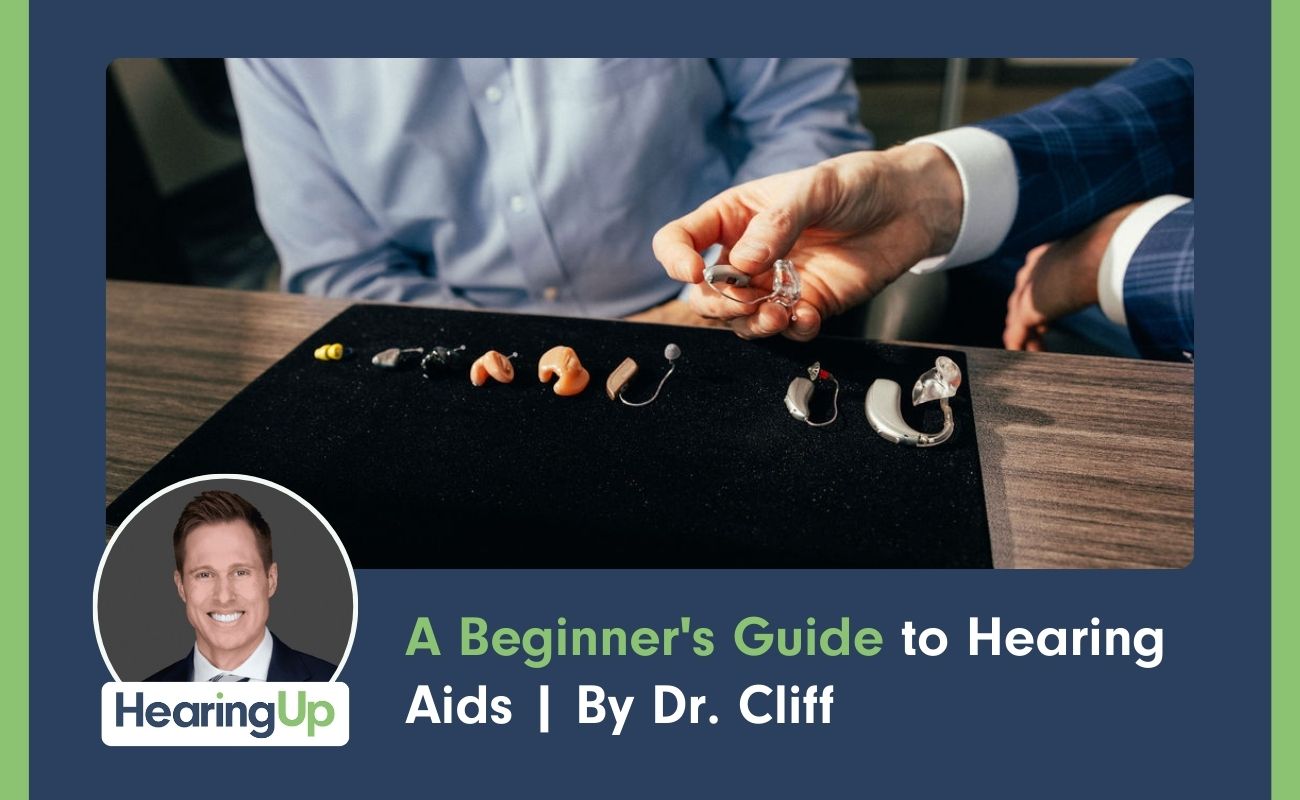
Hearing aid success requires 90-min evaluations, Real Ear Measurement programming, appropriate tech selection, 30-day adaptation and ongoing professional follow-up.
Read More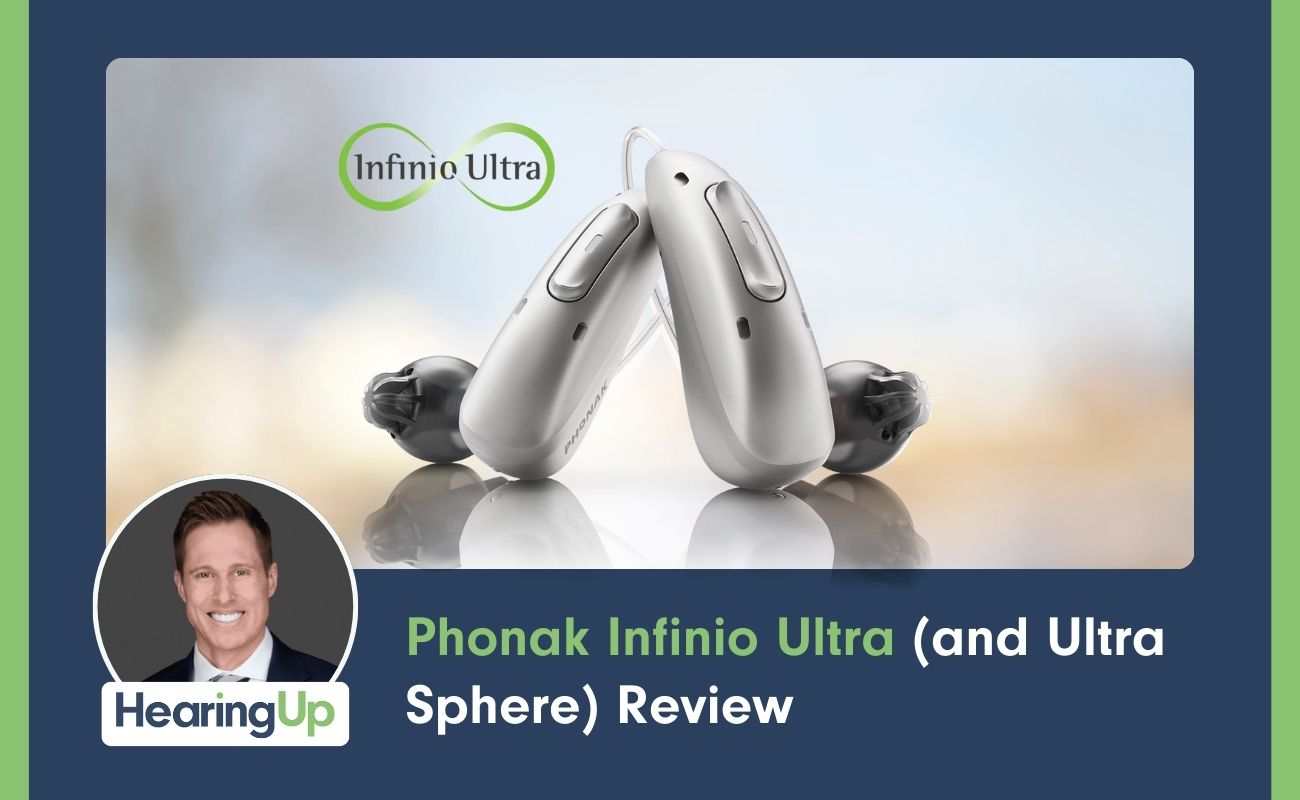
Phonak Infinio Ultra firmware adds AutoSense OS 7.0 (24% better), 30% improved battery (10hrs with AI), simplified Bluetooth pairing, and faster feedback tests.
Read More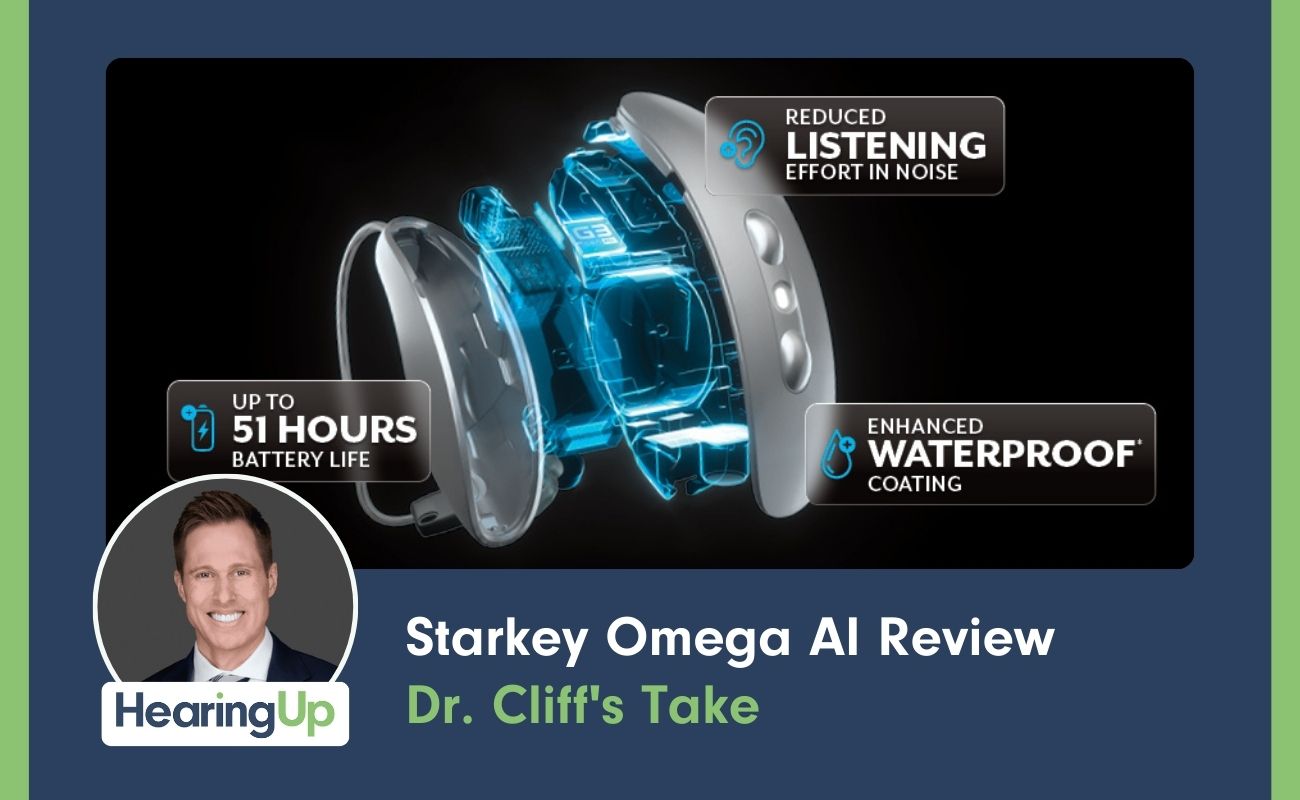
Starkey Omega AI improves on Edge AI with DNN 360 (19.6% better speech clarity), spatial awareness, find-my-hearing-aid lights, and 20x stronger custom shells.
Read More
HRV objectively measures stress affecting tinnitus by tracking autonomic balance, enabling data-driven treatment adjustments via Modern Tinnitus Basecamp.
Read More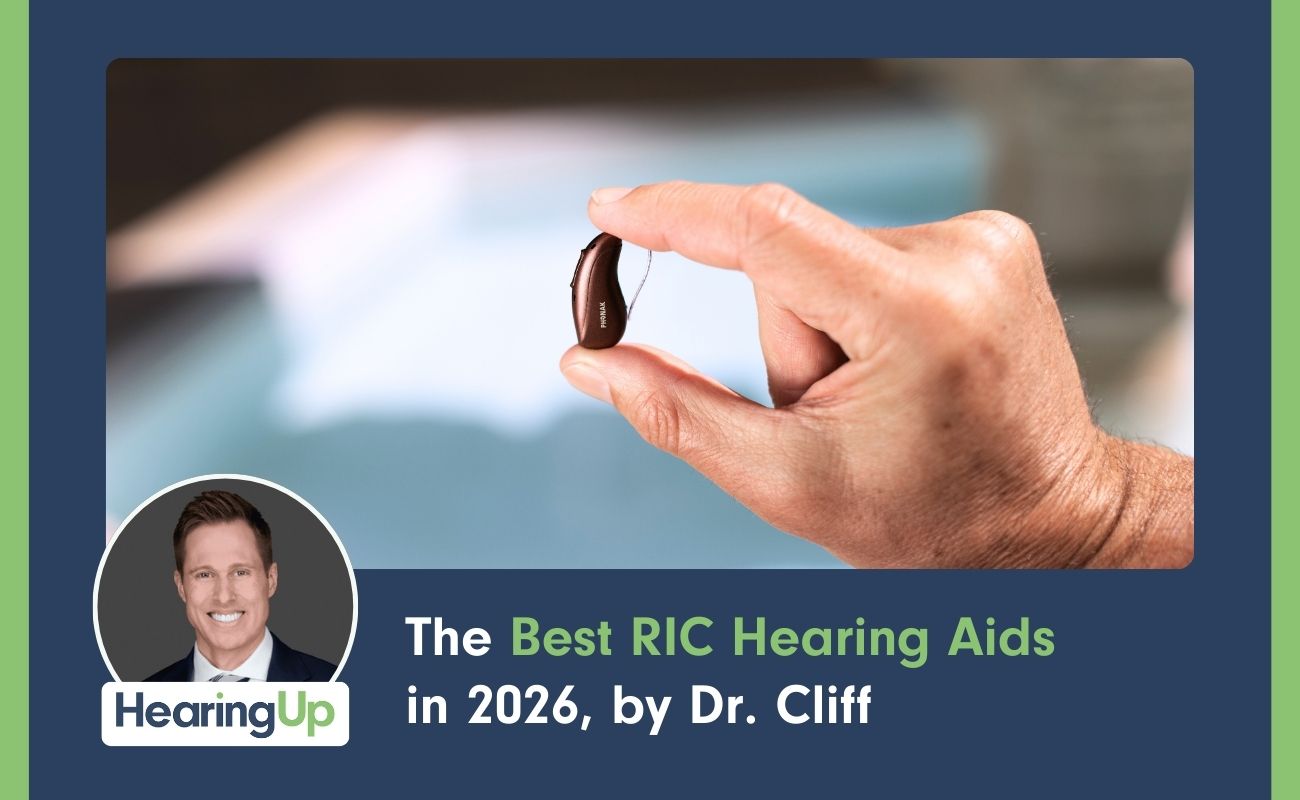
Top 2026 RIC hearing aids: Phonak Ultra Sphere Infinio (AI noise reduction), Starkey Omega AI, Oticon Intent, Signia IX, Widex SmartRIC.
Read More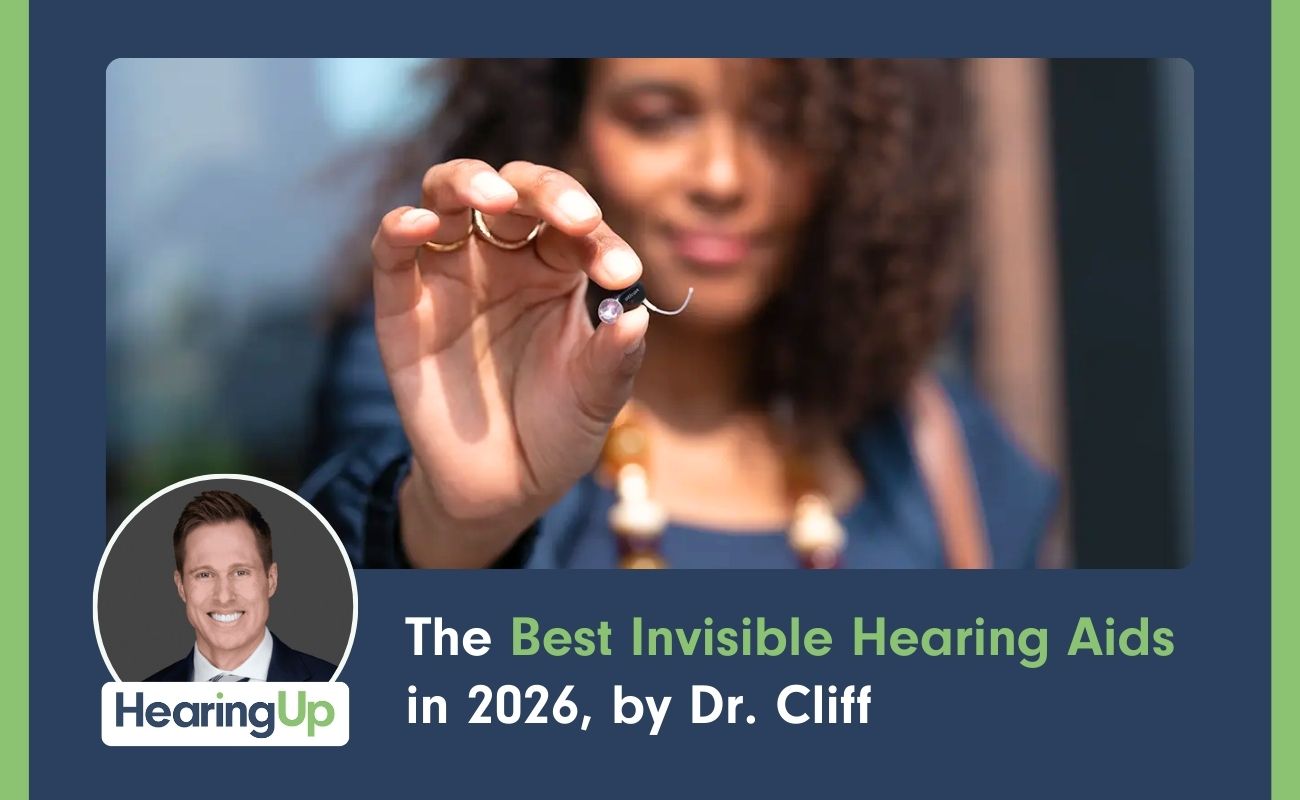
Best 2026 invisible aids: Oticon Zeal (AI/Auracast), Phonak Lyric (self-replace), Starkey IIC (minimal), Phonak Titanium (durable), Oticon Own (AI processing).
Read More